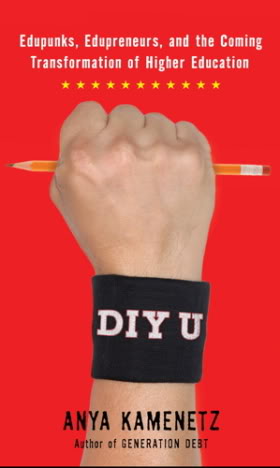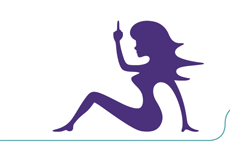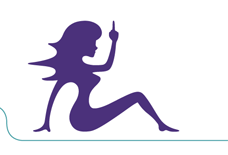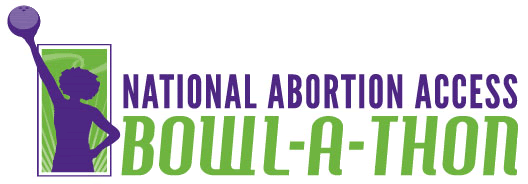 While we all cheer when Barack Obama talks about creating a nation where every single kid can pursue a college education, the deep chasm between here and there is sobering. Presently, only a third of Americans actually have a college diploma, and the majority of us are mired in school debt of one kind or another. The mortarboard, at least at the college level, is way more elusive and expensive than ever. So what is going to bridge the gap between?
While we all cheer when Barack Obama talks about creating a nation where every single kid can pursue a college education, the deep chasm between here and there is sobering. Presently, only a third of Americans actually have a college diploma, and the majority of us are mired in school debt of one kind or another. The mortarboard, at least at the college level, is way more elusive and expensive than ever. So what is going to bridge the gap between?
Anya Kamenetz, staff writer for Fast Company, believes that the bridge between Obama's vision and the present reality is open content and online learning. In her new book, DIY U: Edupunks, Edupreneurs, and the Coming Transformation of Higher Education, she argues that huge demand and high cost of higher education, coupled with technological and information innovations, are leading to a total paradigm shift in who learns and how we do it. She writes:
Research shows that, at its best, hybrid learning beats both online-only and classroom-only approaches. Learners can take in and retain more content faster and more easily, form strong mentoring and teamwork relationships, grow into self-directed, creative problem solvers, and publish portfolios of meaningful work that help jobs find them. These innovations hold out the tantalizing possibility of beating the cost disease while meeting the world's demand for higher education.
Unsurprisingly, the prospect of online learning and open source curriculum makes lots of folks nervous. Anyone who's had a truly transformative relationship with a professor, in person, doubts that the same dynamic can really be replicated online. But no worries, Kamenetz isn't arguing that the days of sitting in uncomfortable lecture halls are going extinct; she's not a technology evangelist. Instead, she's arguing that a new hybrid form of learning is going to emerge from the dynamic intersection of forces pushing educators and aspiring students to innovate.
Bottom line: If more people can have access to life-changing information and life-building skills, than we owe it to ourselves to face this new future unafraid.
0 TrackBacks
Listed below are links to blogs that reference this entry: Not Oprah's Book Club: DIY U.
TrackBack URL for this entry: http://www.feministing.com/cgi-bin/movabletype/mt-tb.fcgi/19025














I will never understand why there is such a push for everyone to go to college.
Many people, including many who did have the option, should not go to college. They should go to technical schools and learn trades they will love and enjoy, or go right into business and spend the time they would otherwise waste on a degree they will never use gaining experience.
The problem is not that colleges are so expensive they are outside the grasp of many, it's that a college education-- any college education-- is required for jobs that do not actually need them. A teacher, doctor, professor, or scientific researcher? Absolutely, college is a must. A computer programmer? You can get a job as one of those with ANY college degree, but they won't hire you without one. So a person with 4 years experience working with computers and excellent programming skills gets passed over for someone like my mother, an English major who knew nothing about them when she was hired. Yet get a degree IN the subject, and you're overqualified.
We keep pushing for more college, more college, more college even as college graduates saturate the market, face extreme competition, and now have to get MAster's degrees and Ph.Ds to find employment in the field. I'm graduating in a month and facing a world where no graduate I know under 30 has a job remotely in their field, or that pays more than $20,000 a year. I know several in graduate schools, many in unrelated low-income jobs, and several on state aid. I also know many successful and happy young people who all have one thing in common-- they couldn't afford college, so they went to tech schools and are making more than I will see before I'm 40 doing jobs that are much more secure and enjoyable than I will ever have.
I tell every kid I know, don't go to college unless you specifically know you want a job that will absolutely require it. If you're uncertain, save your money, your health, your sanity and your time and find a good technical school. And it saddens me greatly to see Obama pushing for more people like me coming out of college with less of a future than I had coming in.
I tell every kid I know, don't go to college unless you specifically know you want a job that will absolutely require it. If you're uncertain, save your money, your health, your sanity and your time and find a good technical school. And it saddens me greatly to see Obama pushing for more people like me coming out of college with less of a future than I had coming in.
I generally agree with your point here. College isn't for everyone, but technical schools aren't either so I wouldn't push that as the only alternative. What about professional certificates from community colleges, i.e. computer repair, massage therapy, cosmetology, HVAC certification, auto body restoration, etc?
And yes, no one should waste their time and money on college if they're not sure what they want to do. When I was in undergrad (before I was forced to withdrawal for financial reasons), I knew so many kids who had no idea what they wanted to do. I often asked, "Then why are you here?" Most of them had the financial privilege to attend college without any specific purpose so my question didn't matter much to them, but I saw it as a problem. I am not advocating for that type of education.
I nonetheless support Obama's push for more accessible higher education. We TRUE equal opportunity and we need highly skilled workers with the critical thinking skills that a higher education (of any type) encourages.
The problem is not that colleges are so expensive they are outside the grasp of many, it's that a college education-- any college education-- is required for jobs that do not actually need them.
I think that's a pretty privileged position to take. College is prohibitively expensive for millions of Americans and it is the major problem. You make a valid point, but you didn't need to minimize the classist expense of higher education in order to make it.
The problem is that colleges and universities have taken on SO MUCH unnecessary middle management staff that the cost of tuition has spiked.
Online classes are a start, but jobs needed to be pruned back considerably at almost every college and university to begin to make tuition available, affordable, and an actual option.
Courtney wrote, in a very unbiased, even-handed style:
Actually, the prospect of more online learning has made a lot of people a lot more than nervous, without seeming like technophobes many have pointed out that online learning has all of the strengths but many more of the kind of weaknesses that old-fashioned correspondence courses had. Correspondence courses can certainly be a legitimate way to earn some credit hours, but courses like that were also a hallmark of many degree mills which churn out everything from AAs to PhDs if you can fill out a few forms and pay or charge the tuition to your financial aid.
Online learning not only takes away face-to-face student-professor interaction, it takes away face-to-face interaction between students and support staff like librarians and library aids. It allows for micromonitoring of student behavior in the same way that similar technology monitors various time-related metrics of cashiers and call center representatives. Sure, online learning as a supplement to traditional (and every variety of nontraditional) classroom settings can help, but that's seeing it as a tool and not as the efficency-driven, cost-saving measure that administrators and, yes, many taxpayers might see it as.
Personal teacher/librarian interaction is great; unfortunately for many rural or low-income area schools there's not much of those things available.
Better an imperfect solution than no solution at all. Online learning has it's own problems, but it also has things about it that are far better than traditional classrooms-and not just the cost. You don't have to find a babysitter, drive miles to get to class,or get shafted out of good classes because of where you live, etc.
It's not surprising that a blend would be the best. Take difficult classes or labs in person but have an online class available if there's a schedule conflict.